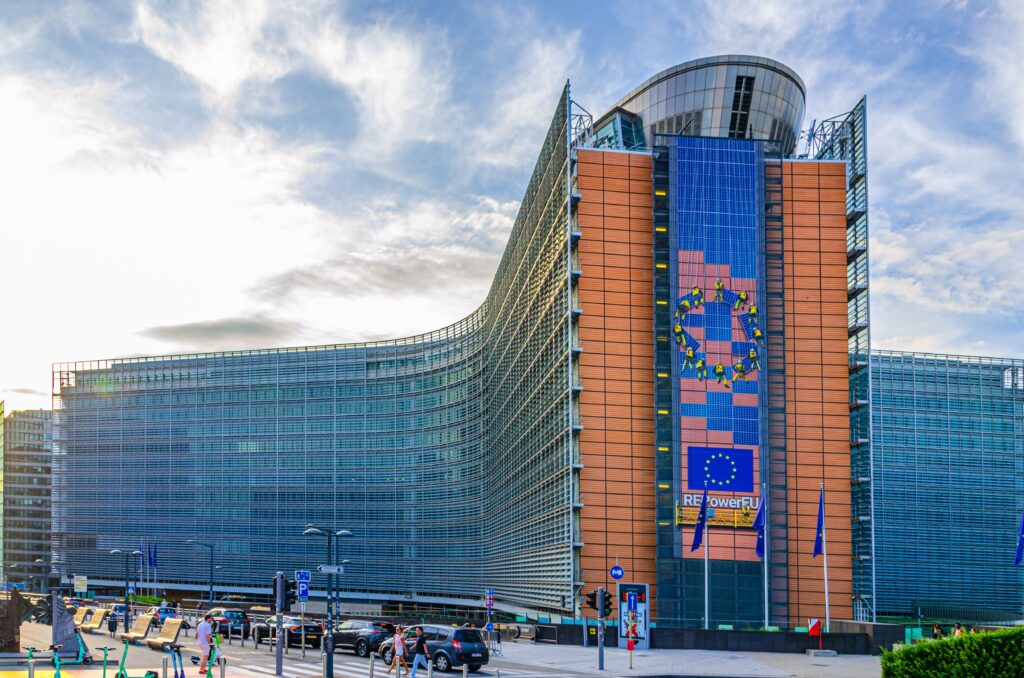Strategy for European Life Sciences €350 million funding opportunities set to boost EU food innovation
The EU’s Strategy for European Life Sciences has outlined funding opportunities worth €350 million and plans to scale up fermentation technologies that could unlock the potential of Europe’s food innovators.
This article is also available in German, Italian and Spanish.
2 July 2025

The EU’s Strategy for European Life Sciences has outlined funding opportunities worth €350 million and plans to scale up fermentation technologies that could unlock the potential of Europe’s food innovators.
The strategy highlights the use of technology to develop innovative new food ingredients as an area that can contribute to the European Commission’s goal of transforming the EU into a global life sciences leader by the end of the decade.
It points to advanced fermentation technologies as having ‘significant potential’ to develop a wide range of high-end products, such as sustainable food ingredients made using renewable raw materials with low environmental impact.
This includes:
- Biomass fermentation, a process similar to how tempeh is made, which can help reduce waste by transforming agricultural byproducts into nutritious and delicious food, including ingredients that look, cook and taste like meat.
- Precision fermentation, a process that has been used for decades to make products like rennet for cheese. European researchers and startups are now using it to produce proteins such as whey, as well as sustainable ingredients like palm oil and chocolate compounds.
The strategy states that while European startups and SMEs are driving innovation in these technologies, scaling up production is expensive and challenging.
It proposes that the Commission help support the scale-up and uptake of fermentation by developing public-private partnerships and organising an annual conference to boost collaboration and knowledge sharing.
Nonprofit and think tank the Good Food Institute Europe (GFI Europe), says the strategy can help enable the bloc’s SMEs to commercialise the findings of a growing network of European scientists working on these foods.
A report earlier this year found that, with the right policy support, alternative proteins including fermentation could boost the German economy by up to €65 billion and create up to 250,000 new jobs by 2045. Because these foods require less land, even a modest diversification of protein production could enable 21% of European domestic farmland to be used for organic farming or for boosting domestic food production.
The strategy’s other proposals to support European food innovators include:
- Making €150 million available under the EU’s flagship Horizon Europe research programme to promote the EU’s leadership in sustainable bioeconomy solutions, presenting opportunities to scale up fermentation-made foods.
- Making another €200 million available under Horizon Europe’s 2026-2027 programme, supporting innovation and enabling researchers and businesses to collaborate more closely on boosting life science technologies – something that is directly relevant to those working on alternative proteins. This funding is aimed at driving sustainability and improving the EU’s efficiency in processes such as biomanufacturing, which includes the use of microorganisms and cell cultures to develop new products for a wide range of applications, including food.
- Creating a strategic R&I agenda on food systems to help develop innovative and sustainable solutions. This will provide opportunities to support open-access research addressing key challenges such as improving the taste, texture, and cost of these foods.
The strategy also proposes seeking expert scientific advice to help improve public understanding of ultra-processed foods (UPFs).
GFI Europe and the Physicians Association for Nutrition (PAN International) have found that public confusion over UPFs may be limiting consumer uptake of options such as plant-based meat, despite evidence suggesting it can reduce levels of LDL (bad) cholesterol, reduce the risk of bowel cancer, and improve gut health.
Lea Seyfarth, Policy Officer at GFI Europe, said: “It’s great to see the Commission recognising the central role that food innovation can play in boosting Europe’s life sciences sector and proposing measures that can harness the region’s growing expertise in transformative technologies such as fermentation.
“With the incoming Danish presidency highlighting the importance of biotech in food production, momentum is building behind innovative ways to develop a more sustainable food system. This strategy is a step towards unlocking the EU’s potential to become an alternative protein world leader, driving growth and reducing reliance on imports.”
